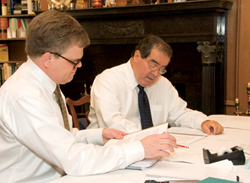A Quote by Laurie Anderson
A lot of words in English confuse the idea of life and electricity, like the word livewire.
Related Quotes
A word about 'plain English.' The phrase certainly shouldn't connote drab and dreary language. Actually, plain English is typically quite interesting to read. It's robust and direct-the opposite of gaudy, pretentious language. You achieve plain English when you use the simplest, most straightforward way of expressing an idea. You can still choose interesting words. But you'll avoid fancy ones that have everyday replacements meaning precisely the same thing.
Sarah Palin was delivering a speech and she said 'refudiate.' It's not a word – you have refute and repudiate, and she combined them. A lot of times that will happen and people will confuse combinations of words. I remember a couple years ago John McCain mistakenly combined the words Vice President and Palin.




































